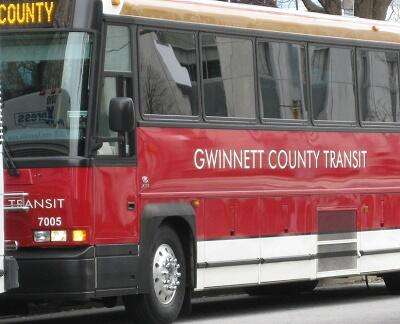LAWRENCEVILLE — Tuesday, July 20, The Gwinnett County Board of Commissioners approved placing a 1 percent sales tax to fund a wide range of transit projects on the November 3 voting ballot. This is a new sales tax created by action of the Georgia state legislature in 2018 to fund transit, and the Gwinnett County referendum will be the first proposition under this new tax.
If voted in, the Transit Special Purpose Local Option Sales and Use Tax would run for 30 years and fund 82 transit projects that include: premium high capacity services bus rapid transit (BRT) and arterial rapid transit (ART), expanded coverage of the county by local and express commuter bus services, on-demand micro-transit, and paratransit services. The proposed transit plan also includes an extension of heavy rail lines from Doraville to Jimmy Carter Boulevard, subsidies for vanpools and transportation network companies, and funds to improve pedestrian connection to transit services.
The Board of Commissioners created the list of projects with input from the Gwinnett County Transit Review Committee (TRC). The Atlanta-Region Transit Link Authority (The ATL), which oversees transit planning in metro-Atlanta approved the final list.
“By 2050, Gwinnett County is projected to have 1.5 million residents. This growth will require a range of options that enhance mobility, including more robust transit choices,” Board Chairman Charlotte Nash explained. “We have listened to input from our residents and our business, and the Board of Commissioners and staff have given a lot of thought to this list of projects. We believe this plan’s broad range of projects will best position Gwinnett for future mobility success.”
Under the referendum, the County would design and construct the transit projects, as well as operate and maintain the transit system sparing the heavy rail extension; this project would be under MARTA, as stipulated by state law. Federal and state dollars and farebox collections are also able to help fund proposed transit projects over these upcoming 30 years.
In the fall of 2019, the Board formed the Gwinnett County Transit Review Committee. This diverse 13-member committee analyzed previous planning efforts in order to create a new one. The Board reviewed the TRC plan alongside others to develop a list of projects to propose to the ATL, which paved the way for this sales tax referendum.
The 2020 ballot’s transit plan differs from earlier plans in these following ways:
- Outlines a more aggressive, first 10-year implementation strategy
- Adds more local bus routes including those in Lilburn, Sugar Hill, and Suwanee/Buford while shortening service wait times
- Increases regional connectivity including routes to Alpharetta, Stonecrest, and Athens
- Adds a BRT route to the Mall of Georgia
- Increases paratransit coverage throughout the county
The Board report list includes the following projects:
- BRT projects to create a network of frequent, reliable transit service through the construction of dedicated lanes and high-quality stations; projects include connections between a proposed multimodal hub at Jimmy Carter Boulevard and the Sugarloaf Park-and-Ride lot, Lawrenceville and Peachtree Corners (including connections to Georgia Gwinnett College and Gwinnett Tech), and Snellville and the Indian Creek MARTA Station in eastern DeKalb County as well as between the Infinite Energy Center and the Mall of Georgia
- A network of complementary ART bus projects that incorporate some elements of BRT at a lower cost, such as queue-jumper lanes and transit signal priority for vehicles to provide enhanced transit service
- Local bus projects that improve the existing network as well as create connections to the high capacity transit backbone of the system (heavy rail, BRT, and ART)
- Projects that result in robust expansion of the express commuter bus system, providing rides from park-and-ride lots throughout the county to major employment centers in Downtown/Midtown Atlanta, Buckhead, Perimeter, Emory/CDC, and Athens; these routes are further supplemented by new all-day service that provides access to park-and-rides from MARTA rail stations
- Regional connectivity projects across all modes to existing/planned transit investments in north Fulton County, eastern and southern DeKalb County, and Hall County
- Micro-transit projects that enable residents within designated areas of Gwinnett to request an on-demand ride either within this specified zone or to connect to nearby transit service
- Expansion of paratransit services throughout the county to provide transportation services for those with mobility challenges
- Numerous complementary capital investments, including new and improved transit centers and park-and-ride lots
- Project funding to support supplementary vanpool and ridesharing services, technology upgrades across the network, and improvements to bicycle and pedestrian infrastructure to increase transit accessibility
- Project funding to improve existing bus stops as well as to construct new bus stops with high-quality amenities, such as shelters, lighting and real-time signage
- Projects to maintain a state-of-good-repair for the transit system, including construction of a new maintenance facility and replacement/upgrade of transit vehicles at the end of their useful life
— Staff Reports




